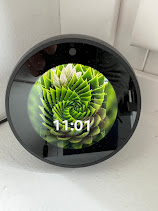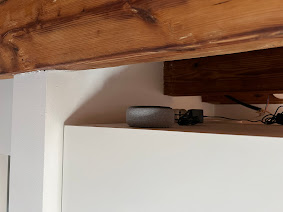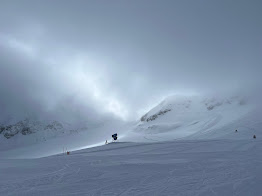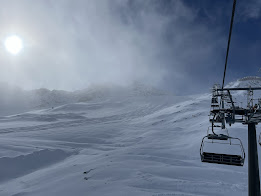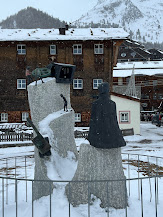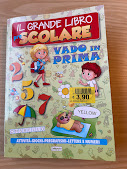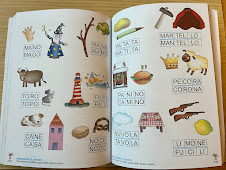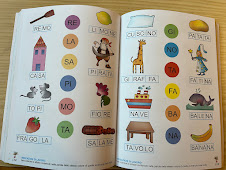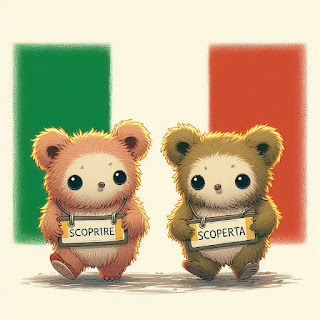Overview
I still feel awkward using the phrase prima che (“before”) when speaking Italian. My awkwardness has to do with not feeling comfortable using the subjunctive mood (il congiuntivo). I always search for a way to rephrase the sentence to avoid subjunctive, which leads to grasping for words followed by conversation collapse.Prima che + subjunctive is used in sentences where the subordinate clause happens after the action in the main clause and the subjects of the two clauses are different. For example: Spero di arrivare prima che inizi a piovere. => “I hope to arrive before it starts raining.”
- Prima che is a temporal conjunction that helps establish when one action precedes another. It is used in subordinate clauses. Example: “If you finish your homework, I’ll give you a cookie” where “If you finish your homework” is the subordinate clause.
- In Italian, the subjunctive is used in many “types” of subordinate clauses that have Italian names like finale, esclusive, soggetive, oggettive, dichiarative, interrogative indirette, causali, consecutive, concessive, condizionali, temporali, comparative, eccettuative, limatative, and relative. Prima che falls in the temporali type, that is, the conjuction orders the subordinate clause in time with the main clause. (This type list is from Grammatica italiana di base by Pietro Trifone, Massimo Palermo.)
Prima di + infinitive is used for actions (prepositional phrases) or another way of saying that is it’s used in dependent clause when the subject of both actions is the same. For example: Prima di pensare a te stesso, pensa agli altri. => “Before thinking about yourself, think of others.” Another example: Mi sono messo il cappotto prima di uscire. => “I put on a coat before leaving.” The subjects are the same in both parts of the two examples. Compare the last example to Mi sono messo il cappoto prima che iniziasse a nevicare where the subject changes.
It’s important to differentiate between prima di and prima che, which in English both translate to “before”.
Examples
Present subjunctive
Spero di arrivare prima che inizi a piovere. => “I hope to arrive before it starts raining.”
- Rewording: Spero di arrivare prima dell’inizio della pioggia.
- Rewording: Spero di arrivare prima del temporale.
Cuciniamo prima che arrivino i miei, no? => “Let’s cook before my parents arrive, shall we?”
- Rewording: Cuciniamo prima dell’arrivo dei miei, no?
Ripensaci prima che sia troppo tardi. => “Think (about it) again before it’s too late.”
- Rewording: Ripensaci, potrebbe essere troppo tardi dopo.
Voglio finire prima che arrivino gli altri. => “I want to finish before the others arrive.”
- Rewording: Voglio finire prima dell’arrivo degli altri.
Stava bene prima che uscissi di casa. => “He was fine before I left the house.
- Rewording: Stava bene prima della mia uscita di casa.
- Rewording: Stava bene quando me ne sono andato da casa.
- Rewording: Hanno ordinato la pizza prima del nostro arrivo.
- Rewording: Hanno ordinato la pizza e pio siamo arrivati.
Speravo che tu avessi finito i compiti prima che arrivassi a casa. => “I hoped that you had finished your homework before I got home.”
- Rewording: Speravo che tu avessi finito i compiti quando sono arrivato a casa.
Era necessario che lui avesse parlato con il direttore prima che prendesse una decisione. => "It was necessary that he had spoken with the director before he made a decision.”
- Rewording: Dopo aver parlato con il direttore, era necesario che lui prendesse una decisione.
Thoughts on learning the subjunctive in Italian
I think my trouble with the subjunctive (il congiuntivo) in Italian is that I learned it incorrectly from the start. Years ago, I was introduced to the subjunctive mood in Italian with examples of doubt and hypothetical sentences and strongly associated its use only with these cases. It is used in these cases but also many other cases as described above with subordinate clauses including prima che. Se solo qualcuno me lo avesse detto prima che iniziassi a imparare l'italiano,
So, when I’m trying to express something like “They ordered the pizza before we arrived” my brain goes oh, this is factual and therefore subjunctive is not needed. This is wrong. I’m at the point in my Italian language odyssey that I know it’s wrong, but usually after the incorrect words have left my mouth.

